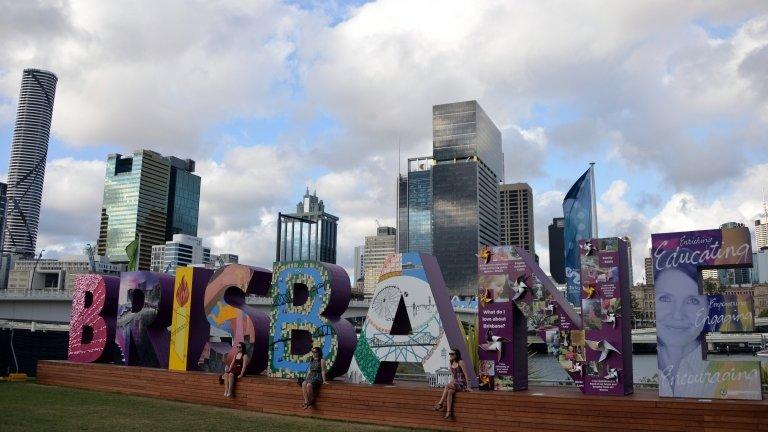Australia's economic growth slower than expected
- Published
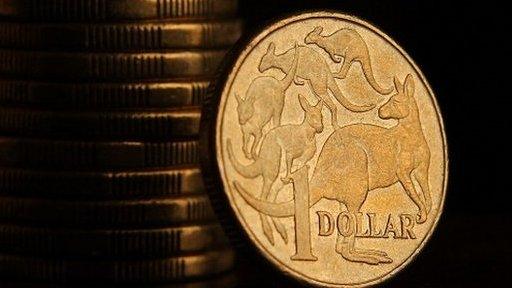
Australia has reported weaker-than-expected economic growth between July and September, due largely to a drop off in mining investment.
Its economy grew 0.3% in the third quarter, compared to the previous quarter, and was up 2.7% year-on-year, according to official numbers, external.
Economists had expected quarterly growth of 0.7% for the period and year-on-year growth of 3.1%.
The Australian dollar fell to a new four-year low on the news.
Analysts said the gross domestic product (GDP) numbers meant the nation's economy was growing below trend, and that the decline in mining investment would be a major hurdle for the economy for up to the next two years.
Behind the numbers
"Australian GDP growth in the third quarter significantly undershot expectations, with shares and the Australian dollar weakening immediately," Sydney-based CMC Markets analyst Michael McCarthy told the BBC.
But he said markets may see through the weaker reading.
"Recent leading indicators such as capital expenditure and building approvals have shown strength," Mr McCarthy said.
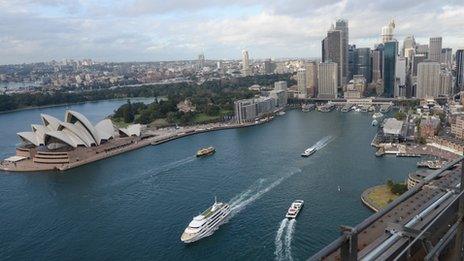
Some analysts say the disappointing growth results could put pressure on Australia's central bank to lower rates early next year
"Additionally, the consumer component of the national data surprised on the upside, with employment and spending picking up and the household savings ratio falling to 9.3% from persistent reports above 10%," he added.
Export and current account figures, released on Tuesday, had painted a brighter picture, raising expectations of a solid GDP reading for the quarter.
"The interesting pick out of [today's] figure is net disposable income is down 0.3%, and fixed investment is also falling," Evan Lucas, a market strategist at IG Markets in Melbourne told the BBC.
"And with fourth quarter GDP looking even weaker on the commodities slowdown, growth in Australia looks in for a tough time," he added.
Some analysts say the growth results could put pressure on Australia's central bank to lower rates early next year.
The Reserve Bank of Australia maintained its record low official interest rate at its monthly meeting on Tuesday.
The bank's interest rate has been at 2.5% since August last year.
- Published17 November 2014
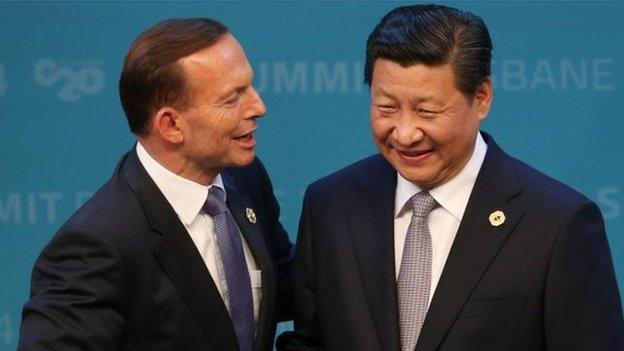
- Published25 November 2014

- Published16 November 2014
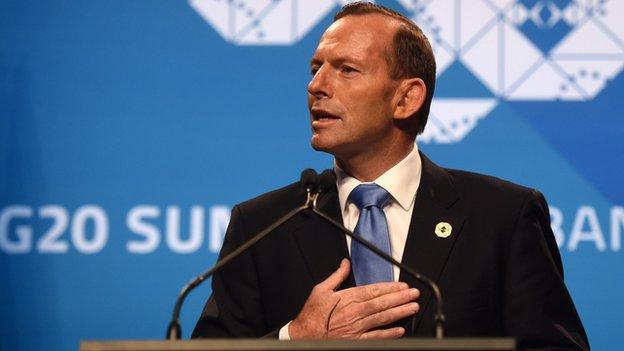
- Published14 November 2014
